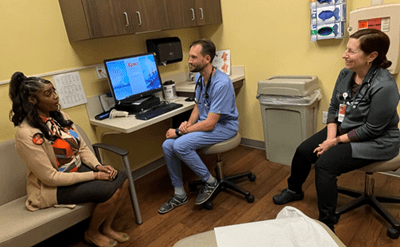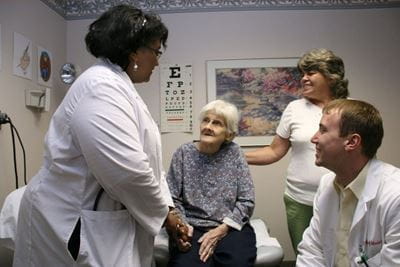
One of the benefits of training in a large, robust academic setting is the access to additional broad areas of study. Motivated residents in the Internal Medicine Residency program have the option to pursue additional training driven by their unique areas of interest. These tracks are optional as they do require additional attendance at curricular sessions as well as assignments and possible completion of a capstone project.
Most are two year programs and will solicit applications from trainees in good standing in the spring of their intern year, giving residents time to settle into training and identify their interests. Many of these tracks are overseen by our Graduate Medical Education (GME) office and are open to trainees in multiple specialties, encouraging multidisciplinary work. Some tracks are only available within the Internal Medicine Residency program.
GME Training Pathways
- Global Health Pathway
- Clinician-Educator Training Pathway
- Healthy Outcomes Training Pathway
- Leadership Training Pathway
- Other non-clinical opportunities

 Indiana University School of Medicine is one of a distinguished and limited number of programs in the country providing an alternative pathway for training geriatricians. This program connects residents to leaders in geriatrics who serve as mentors throughout training. Clinical experiences in geriatrics during internal medicine training satisfy clinical requirements for Geriatric Medicine Fellowship.
Indiana University School of Medicine is one of a distinguished and limited number of programs in the country providing an alternative pathway for training geriatricians. This program connects residents to leaders in geriatrics who serve as mentors throughout training. Clinical experiences in geriatrics during internal medicine training satisfy clinical requirements for Geriatric Medicine Fellowship.